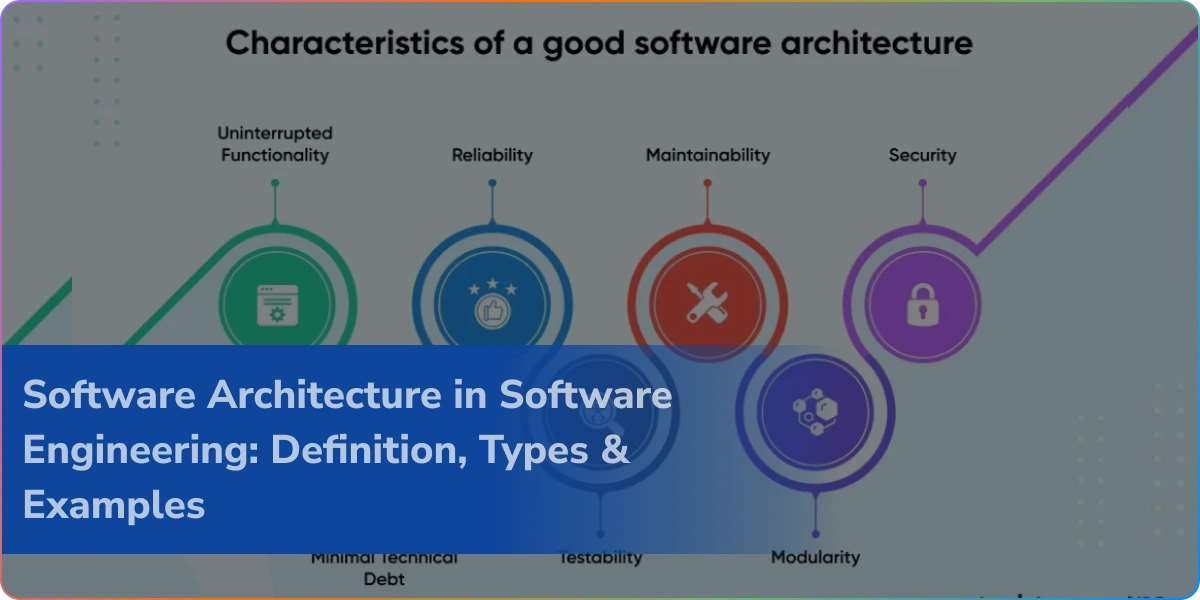When it comes to modern web development, full-stack JavaScript frameworks are the go-to choice for building fast, scalable applications. Two of the most popular options are the MEAN and MERN stacks. At first glance, they look almost identical, but the real difference between MERN and MEAN stack lies in the front-end technology: Angular vs React.
So, if you’re wondering “MERN stack vs MEAN stack – which one should I choose?”, this guide will break it down in simple terms. It will cover the difference between MERN and MEAN stack, their pros and cons, real-world use cases, and how to decide which one is the right fit for your project.
What is MEAN Stack?
Before comparing MERN stack vs MEAN stack, let’s look at what the MEAN stack includes:
- MongoDB: A NoSQL database that stores data in a flexible JSON-like format.
- Express.js: A lightweight, fast Node.js framework for building web apps.
- Angular: A TypeScript-based front-end framework by Google.
- Node.js: A JavaScript runtime for running server-side code.
In simple terms, the MEAN stack is a full-stack framework where Angular powers the front-end, Express and Node manage the back-end, and MongoDB stores the data. It’s a popular choice for scalable, enterprise-level applications.
What is MERN Stack?
Before we look into MERN stack developer meaning, let us know what the MERN technology stack includes:
- MongoDB for data storage
- Express.js for server logic
- React.js for creating dynamic front-ends
- Node.js for running JavaScript on the server
The MERN stack developer’s meaning is simple: a professional who uses these four technologies to create high-performing, interactive applications. The MERN technology stack is especially popular for apps needing real-time updates and smooth user experiences.
MERN Stack vs MEAN Stack: Key Similarities
Before diving into the difference between MERN vs MEAN stack, here’s what they have in common:
- Both are JavaScript-based full-stack frameworks.
- Both use MongoDB, Express, and Node.js as their core technologies.
- Both are open-source with large community support.
- Both offer scalability and flexibility for building web apps.
This is why the MEAN and MERN stack comparison usually focuses on the front-end: Angular in MEAN vs React in MERN.
Difference Between MERN and MEAN Stack
The biggest difference between MERN and MEAN stack is the front-end technology: MEAN uses Angular, while MERN uses React. This affects speed, scalability, and ease of development.
Front-End Framework
- MEAN technology uses Angular, a complete MVC framework ideal for large, structured apps.
- MERN technology uses React, a component-based library with a virtual DOM for faster rendering.
Learning Curve
- Angular requires learning TypeScript and follows strict architecture patterns, making it harder for beginners.
- React is easier to learn and integrates smoothly with other libraries.
Performance
- React (MERN) excels in handling dynamic, high-performance apps with frequent UI updates.
- Angular (MEAN) works best for enterprise apps needing structured, maintainable code.
Community Support
- React currently enjoys wider adoption and active community contributions.
- Angular has Google’s backing, ensuring enterprise stability and long-term support.
MERN Stack vs MEAN Stack: Pros and Cons
Advantages of MERN Stack
- React makes code reusable with its component-driven design.
- Virtual DOM improves app speed and performance.
- Huge community support and active updates.
- Flexible integration with external libraries and APIs.
Disadvantages of MERN Stack
- Doesn’t offer a predefined architecture like Angular.
- More setup work is needed for enterprise-level projects.
Advantages of MEAN Stack
- Angular provides a complete, ready-to-use framework.
- Perfect for enterprise-grade and large-scale apps.
- Built-in TypeScript ensures scalable and maintainable code.
Disadvantages of MEAN Stack
- Learning Angular can be challenging for beginners.
- Slower rendering in apps that require frequent UI updates compared to React.
MERN Stack vs MEAN Stack: Feature Comparison
| Feature | MEAN Stack | MERN Stack |
| Front-end | Angular | React |
| Learning Curve | Steeper due to Angular’s complexity | Easier for beginners |
| Performance | Good for large, structured apps | Faster rendering for dynamic apps |
| Scalability | Highly scalable with MVC pattern | Flexible and modular for scaling |
| Community Support | Strong, backed by Google | Huge, backed by Facebook |
| Use Cases | Enterprise apps, SPAs, and dashboards | Social media apps, e-commerce, and real-time apps |
When Should You Choose MEAN Stack?
- If you’re building a complex enterprise web app with strict coding standards.
- When your app needs to be highly secure, stable, and scalable over time.
- If your developers are already skilled in Angular and TypeScript.
Examples: ERP software, banking apps, government portals.
When Should You Choose MERN Stack?
- For apps that need a dynamic, fast, and interactive user interface.
- When building single-page applications (SPAs) or real-time platforms.
- If you want flexibility in using third-party libraries with React.
Examples: Social media apps, online marketplaces, e-commerce sites.
MEAN and MERN Stack in Real-World Use
Both MEAN and MERN stacks are widely used in real-world projects. The choice depends on the type of application and team expertise.
MERN Technology:
- Facebook and Instagram use React to create fast and interactive user experiences.
- Netflix relies on a React-based setup for handling dynamic content.
- Startups often choose MERN for its flexibility and quick development.
MEAN Technology:
- Google uses Angular for scalable enterprise apps.
- PayPal leverages Angular for secure and large-scale transactions.
- The Guardian uses MEAN for high-traffic content management.
MERN is great for dynamic, user-focused applications like social media or e-commerce, while MEAN is better for structured, enterprise-grade apps.
How to Pick Between MERN vs MEAN?
Type of Application:
- For apps with rich, dynamic user interfaces → MERN Stack
- For projects needing structured architecture and business logic → MEAN Stack
Developer Expertise:
- Go with the stack your team is already skilled in to speed up development.
Scalability & Maintenance:
- MEAN works well for large enterprise-level apps requiring strict patterns.
- MERN offers more flexibility for evolving projects and startups.
Speed of Development:
- If you want to launch quickly, MERN provides a faster setup and development cycle.
The Future of MEAN and MERN Stack
Both mean mern stacks are growing as web development trends shift towards full-stack JavaScript solutions.
- Angular in the MEAN stack is adding more reactive and modular features, making it a strong choice for enterprise-grade applications.
- React in the MERN stack continues to dominate due to its flexibility, performance, and developer-friendly ecosystem.
The ongoing mean MERN stack debate shows that both will remain relevant. Your choice will depend on project needs, scalability goals, and team expertise.
Conclusion
Choosing between MERN vs MEAN isn’t about which one is “better” overall – it’s about what’s best for your project. Both stacks are proven, scalable, and widely adopted. The real key is aligning the right technology with your team’s expertise and project goals.
Still, not sure which stack suits your next web app? Our full-stack experts at Logixbuilt Solutions can help you choose, plan, and build the perfect solution.
Contact us today for a free consultation and get your project on the fast track to success!
FAQ’s
1. What is MEAN and MERN stack?
Both are full-stack JavaScript frameworks. MEAN uses Angular for the front-end, while MERN uses React. They share MongoDB, Express, and Node.js for the backend and database.
2. What’s the main difference between MERN and MEAN?
MEAN relies on Angular, which is more structured, while MERN uses React, which is flexible and great for interactive UIs.
3. What does a MERN stack developer do?
He builds web applications using MongoDB, Express, React, and Node. They handle everything from the database to the user interface.
4. Is MERN better than MEAN?
Not necessarily. MERN is great for apps that need dynamic, user-friendly interfaces. MEAN works well for large, enterprise-level projects with complex workflows.
5. Can I use MEAN and MERN together?
Yes, some projects mix Angular and React in different modules. However, it can add complexity to development and maintenance.



